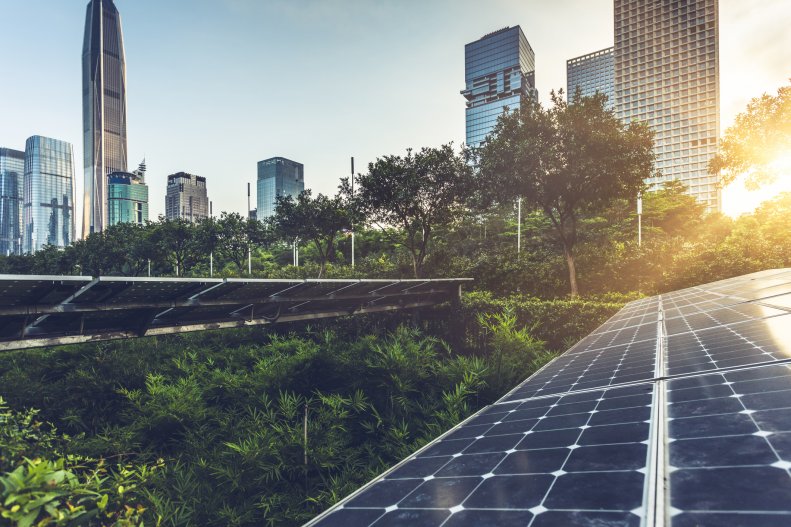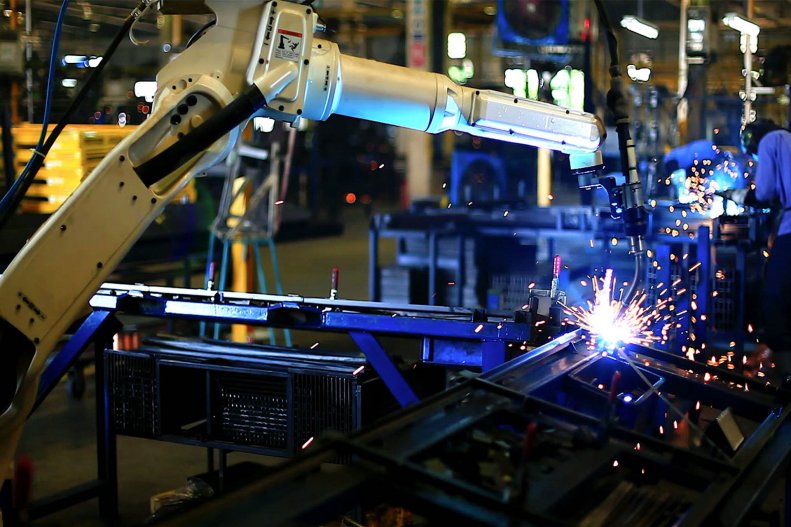What is the Clean Economy?
Each day, more than 200,000 additional people populate the planet1 , further challenging how far natural resources must stretch to sustain human life. Clean Tech companies strive to create genuine solutions to help address these challenges.
The Clean Economy is the rapidly growing universe of companies whose activities improve resource sustainability, support the energy transition (from fossil-based to zero-carbon energy production and storage) or address the issue of water scarcity.
- U291cmNlOiBXb3JsZG9tZXRlciBhZ2dyZWdhdGUgZnJvbSBVbml0ZWQgTmF0aW9ucyBQb3B1bGF0aW9uIERpdmlzaW9uLCBXb3JsZCBIZWFsdGggT3JnYW5pemF0aW9uIChXSE8pLCBGb29kIGFuZCBBZ3JpY3VsdHVyZSBPcmdhbml6YXRpb24gKEZBTyksIEludGVybmF0aW9uYWwgTW9uZXRhcnkgRnVuZCAoSU1GKSwgYW5kIFdvcmxkIEJhbmssIGNvcnJlY3QgYXMgYXQgU2VwdGVtYmVyIDIwMjAu
Why consider investing in the Clean Economy?
Consumers are demanding more of companies and governments as concerns over the sustainability of human civilisation on earth deepen. Consequently, we are seeing the growth of Clean Tech investing, as more companies embrace the circular economy and respond to the need for change.
We believe businesses that are prepared to adapt should have a sustainable, competitive advantage by reducing their input costs over the long-term, and, they could see significant growth potential in the decades to come. We believe that this could provide investors with exciting, new investment opportunities in companies that should stand the test of time.
The world is changing, and we have identified three reasons why we believe now is the time for the Clean Economy:
- Environmental pressure is rising: In recent years the rising potential for human suffering and huge economic loss due to climate-related disasters has been driving more urgency than ever to manage carbon emissions and limit global warming. A lot has happened since nearly every nation on earth committed to a low carbon future by signing the Paris Agreement in 2015 but there’s still a long way to go and the transition to a low carbon future requires carefully balanced social and economic transformation.
- Awareness is rising: Awareness of the impact of pollution is being increasingly driven by governments, consumers and corporates. There is strong regulatory support across the EU (Green Deal), US (Biden's administration) and even China (carbon neutral commitment by 2060).
- Action is rising: Consumers are changing their consumption habits at a faster pace, while companies are investing massively in new clean technologies to avoid the rising cost of taxes and penalties from emissions and to guard against the impact of potential non-financial risks arising from a climate crisis.
These three combined are encouraging governments and companies to reassess their policies and start to implement meaningful change and invest in the circular economy and new Clean Tech.
Our ACT range is designed to enable our clients to invest in the companies and projects leading the transition to a more sustainable world. These strategies go beyond ESG integration, either following a process in which investment decisions are driven by ESG themes or seeking out intentional, positive, measurable and sustainable impact.

Green bonds
Green bonds are among the most interesting innovations of the last decade in the field of socially responsible investment products.

Biodiversity
There is an economic and human cost to biodiversity loss which is being addressed through products and services contributing to ecosystem preservation and restoration.

Social bonds
Rapid growth in the social bonds market offers a compelling opportunity to invest in the social dimension of the transition to a low carbon economy.

Social progress
Invest in the companies providing strong social utility by making essential products and services better quality, more affordable and more accessible to all.
Our Clean Economy strategy
Our approach to investing in the Clean Economy seeks to identify high-quality, growth-oriented companies operating across one of four key investment areas impacted by the finite amount of natural resources. We believe these are the areas which will provide innovative, new investment opportunities:
- Low Carbon Transport: Across the world, the demand for sustainable transport is increasing, providing investors with ample investment opportunities in electric vehicles, battery technologies and emission reduction systems.
- Smart Energy: The necessity and demand for greener homes is growing, helping to provide the impetus and resources for the development of energy efficient technologies. This is creating investment opportunities in renewables, greener homes and efficient factories.
- Agriculture & Food Industry: Companies are exploring new ways to meet the growing demand of rising populations while limiting the use of scarce water and land. This is providing copious opportunities to invest in firms that are developing food and agricultural technologies.
- Natural Resource Preservation: Public opinion is shifting and putting pressure on companies to better manage supply chains - and is providing investment opportunities in companies who are mitigating their environmental damage and evolving their practices.
We only invest in companies which demonstrably generate a share of their revenues from the clean economy through an investment approach combining fundamental stock selection with a proprietary impact framework.
We aim to provide transparent and measurable impact metrics focused on UN Sustainable Development Goals contribution towards environmental and societal issues, including:
- 6 - Clean water and sanitation (Ensure availability and sustainable management of water and sanitation for all)
- 7 - Affordable and clean energy (Ensure access to affordable, reliable, sustainable and modern energy for all)
- 11 - Sustainable cities and communities (Make cities and human settlements inclusive, safe, resilient and sustainable)
- 12 - Responsible consumption and production (Ensure sustainable consumption and production patterns)
- 13 - Climate action (Take urgent action to combat climate change and its impacts)
- 14 - Life below water (Conserve and sustainably use the oceans, seas and marine resources for sustainable development)
The targeting of specific SDGs does not imply the endorsement of the United Nations of AXA Investment Managers, its products or services, or of its planned activities and does not constitute, explicitly or implicitly, a recommendation for an investment strategy.

Our Clean Economy strategy
Our Clean Economy strategy aims to capture the long-term growth potential of new and evolving technologies which allow us to operate our economy and society sustainably.
View fundsTo help people invest in the companies that are embracing these changes, we have adapted our internal research capabilities to incorporate the five main trends that we believe represent the future for long-term fundamental growth investing.

Connected consumer
Digitalisation empowers consumers like never before with 24 hour, mobile access to a vast choice of products - companies must evolve to remain competitive.

Automation
More industries can now use robotics offering greater sophistication, precision for repetitive or hazardous tasks, and may provide affordable labour solutions.

Ageing and lifestyle
Ageing population trends are creating opportunities for long-term growth investors due to growing demand for healthcare, leisure, wellness, housing and more.

Transitioning societies
A rapidly growing global middle class is likely to create growth opportunities as goods and infrastructure demand shifts from the basic to the aspirational.
Disclaimer
This document is for informational purposes only and does not constitute investment research or financial analysis relating to transactions in financial instruments as per MIF Directive (2014/65/EU), nor does it constitute on the part of AXA Investment Managers or its affiliated companies an offer to buy or sell any investments, products or services, and should not be considered as solicitation or investment, legal or tax advice, a recommendation for an investment strategy or a personalized recommendation to buy or sell securities.
Due to its simplification, this document is partial and opinions, estimates and forecasts herein are subjective and subject to change without notice. There is no guarantee forecasts made will come to pass. Data, figures, declarations, analysis, predictions and other information in this document is provided based on our state of knowledge at the time of creation of this document. Whilst every care is taken, no representation or warranty (including liability towards third parties), express or implied, is made as to the accuracy, reliability or completeness of the information contained herein. Reliance upon information in this material is at the sole discretion of the recipient. This material does not contain sufficient information to support an investment decision.
All investment involves risk , including the loss of capital. The value of investments and the income from them can fluctuate and investors may not get back the amount originally invested.
